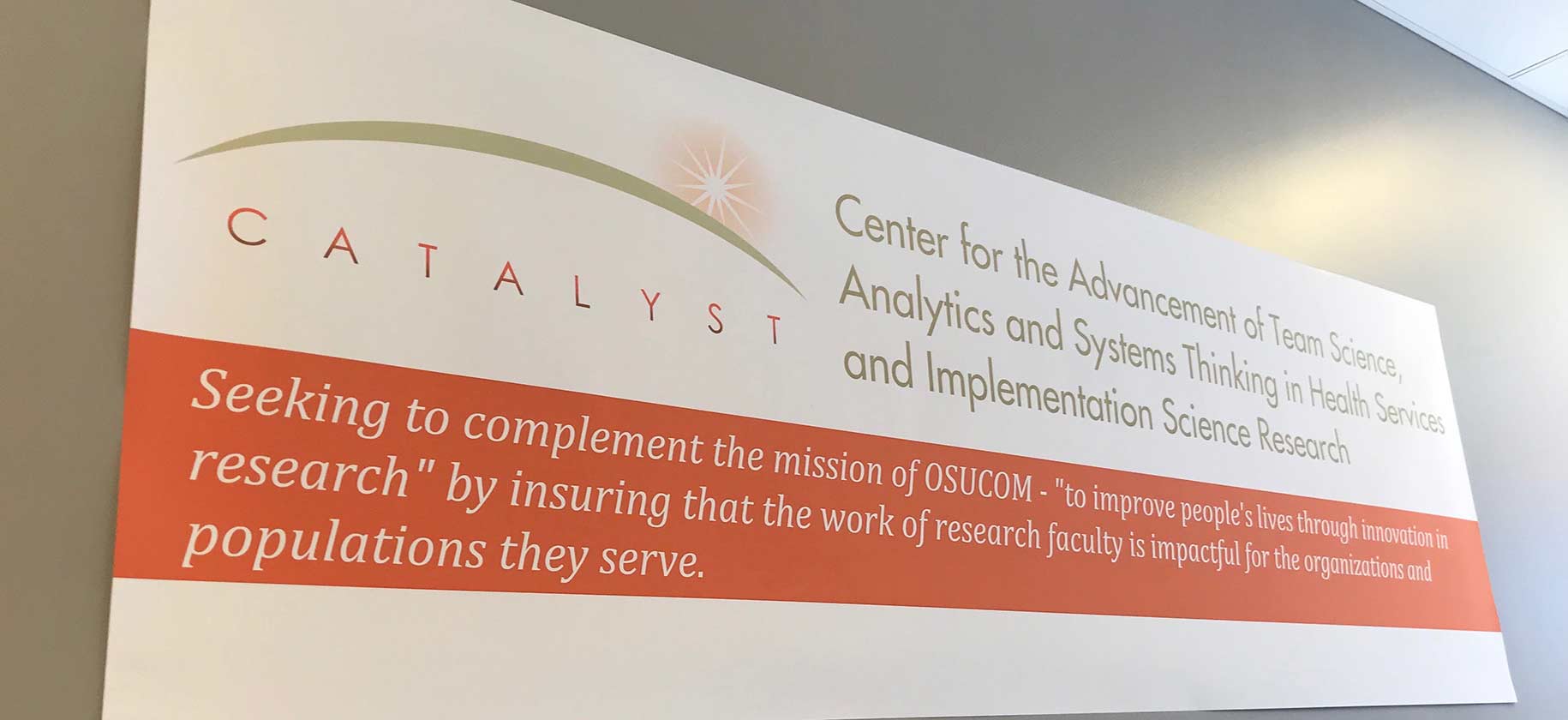
$2.27 million grant awarded to CATALYST’s Dr. Sieck for patient engagement work

By Tyler Griesenbrock
CATALYST scientific editor
Published October 25, 2018
Cynthia Sieck, PhD, MPH, an assistant professor in the Department of Family and Community Medicine at The Ohio State University College of Medicine and a core faculty member with CATALYST, the Center for the Advancement of Team Science, Analytics, and Systems Thinking in Health Services and Implementation Science Research, has received a $2.27 million grant from the National Institutes of Health.
The grant, “Total Engagement and Activation Measure (TEAM): Developing a measure of the capacity for patients to engage in their health care,” aims to improve our understanding of patient engagement. In this context, patient engagement is defined as a patient’s participation in their own health care, from the viewpoints of both health care recipients and clinicians, while also allowing for the recognition of individual differences in a patient’s capacity to engage.
TEAM was developed to meet the need for a measure of engagement that considers the context in which a patient engages in their health care, Dr. Sieck noted, as well as to allow researchers to identify factors that contribute to a patient’s capacity to engage.
“Current measures are limited in their ability to identify where to intervene and are not always publicly available,” she said.
As proposed in the study, patient engagement in health care may encompass a variety of factors such as the actions the patient is willing to take to benefit from that care, the confidence the patient has in taking those actions, and the patient’s access to the resources needed to fully participate in their care.
To create this new measure, Dr. Sieck and her co-investigators in CATALYST will work with patient advisors and physicians across the country to build a concept map to define capacity for engagement. Dr. Sieck and her research team will identify existing measures of the concepts included in the map, then employ the NIH PROMIS® methodology to create new measures where none exist and develop the TEAM instrument to assess a patient’s capacity to engage.
According to the NIH, PROMIS®, or the Patient-Reported Outcome Measurement Information System, is a “system of highly reliable, precise measures of patient-reported health status.” Patient-reported outcomes provide information that comes directly from a patient, rather than through a clinician’s interpretation.
“The last step (of the project) will take the TEAM instrument that we develop using the PROMIS® methodology and test it in a patient population here at OSU,” Dr. Sieck said.
The team at Ohio State includes Dr. Sieck as principal investigator and co-investigators Ann Scheck McAlearney, ScD, MS, Executive Director of CATALYST; Timothy Huerta, PhD, MS; Jennifer Hefner, PhD, MPH; Daniel Walker, PhD, MPH; Megan Gregory, PhD; and Susan Moffatt-Bruce, MD, PhD, MBA. Their work will be supported by clinical collaborator Mary Jo Welker, MD, chair of the Ohio State Department of Family and Community Medicine; quantitative expert Michael Edwards, PhD, MA, from the University of Arizona; and additional research staff.
Dr. Sieck has more than 20 years of experience in the design and evaluation of interventions for individual health behavior change and health services research. Her current research focuses on the interaction of health information technology and the patient experience. She studies how patients can use technology to increase their level of engagement in their care, and how health care systems can best support patients in those efforts. In addition, she examines collaborations with patients as research partners, and is involved in the development of best practices associated with that type of research.
Dr. Sieck earned her PhD in Health Behavior and Health Education from the University of Michigan School of Public Health and a Master of Public Health in Public and Community Health Services from the University of Pittsburgh.
Before joining the faculty in the College of Medicine, Dr. Sieck was a research specialist with the Center for Health Outcomes, Policy and Evaluation Studies in the Ohio State College of Public Health. Prior to that position, she had served as research director for the Wright State University School of Professional Psychology.
